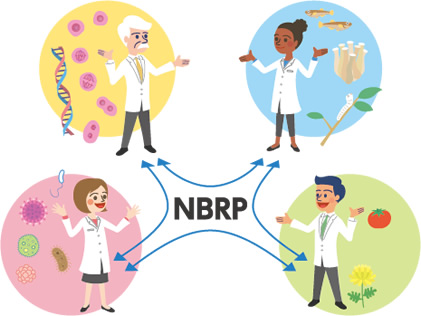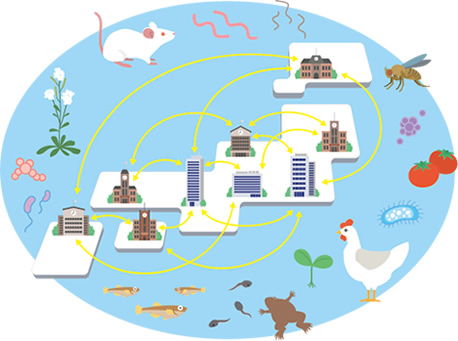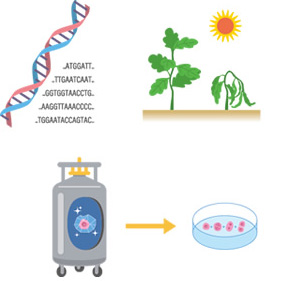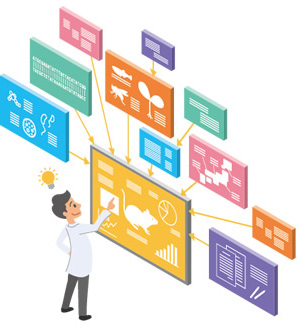The NBRP to support life science research
With the aim of improving your welfare and daily lives, life science research continues to make progress every day, in solving various problems around us related to the environment, food, and medical care.


The National BioResource Project (NBRP) collects various bioresources (biological and genetic materials used in research, and their respective information) used in life science research, for the benefit of researchers. It plays the role of a resource ‘hub’, organizing, storing, and providing collected bioresources on request, while maintaining the value of the resources.
The NBRP consists of a community of about 40 universities and research institutes nationwide, and is working on 30 bioresource projects involving animals, plants, microbes, cells, and DNA materials (e.g., plasmid clones).


At the NBRP, we are investigating genome sequences and characteristics of life activities in these 30 bioresource projects, and developing methods that enable the relevant resources to be preserved alive for a long period of time, laying the foundation for bioresources to be more useful in life science research.
As of 2020, there were a total of about 6.5 million types of biological and genetic materials in the 30 bioresource projects; and for each organism/genetic material, there are various types of information, such as the characteristics of life activities, genome sequences, storage locations, providers, and so on. For optimal progress in life science research, we must provide the information required by researchers accurately and comprehensibly, from the vast variety of information on such an enormous number of biological/genetic materials.
Thus, at the NBRP, we are developing secure and efficient management of this ever-increasing information on a computer network, and providing valuable bioresources (including information) to researchers.

In addition to the aforementioned 30 bioresource projects, which are launched and supported by universities or research institutions, NBRP provides information related to the ecology of great apes and worldwide biodiversity via its website, so that such information can itself be used as a valuable bioresource; and we have created a system to support researchers with respect to compliance with the laws and regulations related to the acquisition and use of biological samples from overseas (conclusion of the Nagoya Protocol).
Materials related to the activities of providers and the respective bioresource projects are available on the page, “Publications and Digital Contents Concerning Bioresources.“. Please take a look.

